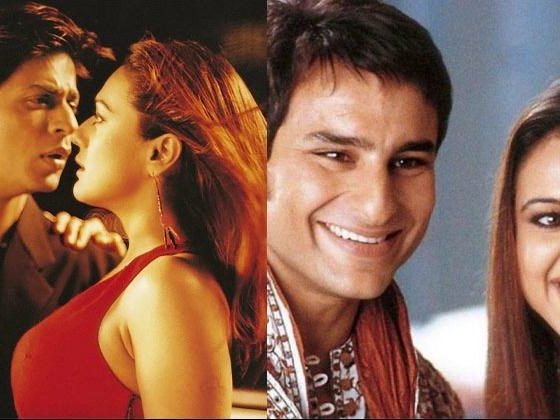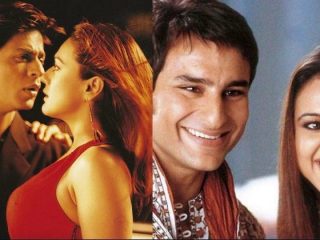This is not a subject I could have imagined myself wanting to write about. Let me get this straight, I am not a Taylor Swift fan. Even though I absolutely adore two of all the albums she’s made, there had never been anything in particular which would’ve made me write about her. Yet, even in light of my indifference to who she is and the work she’s produced, I also happen to be deeply fascinated by culture — precisely in knowing the why of things. So when the concert film of her mid-way tour came out of nowhere and left everyone enthralled, I couldn’t help but realize how important of a cultural phenomenon she is. With the groundbreaking success of “The Eras Tour”, I believe it is safe to say that Swift’s level of fandom has reached a new feverish height.
It’s obvious how Swift’s catalog of generation-defining hits and canny marketing approach have helped her achieve a level of white-hot demand and media saturation not seen since the ’80s heyday of Michael Jackson and Madonna — a kind of dominance that the entertainment business largely accepted as impossible to replicate in the fragmented 21st century. After a hugely successful first US leg, the “Eras Tour” will aim at spanning over five continents before concluding in Nov 2024. Even for her fans who couldn’t afford going to the concert, the ineffably radiating, celebratory atmosphere of the tour seemed to envelope everyone. With a five-year gap since her last tour and four new albums to showcase, Swift and her fans were electrified.
Moreover, the timing of the tour aligned perfectly with a post-pandemic world where people were eager for such lively experiences. In an era where experiences hold great value, Swift’s “Eras Tour” promised a unique opportunity for fans to immerse themselves in a memorable musical journey. Music critics have portrayed it as showing the artist at the top of her game as a media-savvy, big-tent talent – a pop star with a knack for grand spectacle as well as the polished artistry of a classic songwriter.
Her celebrity fandom is as high as it comes. Few individual music artists have ever been as popular as she is now. A music artist’s proverbial peak is somewhat different, as it isn’t so much based on age per se but timing. Swift understands this, and has even acknowledged in the past. More than most, she understands how she owns the narrative and has a strong sense of how she wants her career to evolve. That’s precisely why as soon as the news of the concert film surfaced the internet, millions of fans echoed this enchanting enthusiasm which translated into unprecedented early box office numbers. It gave her fans a victorious way of living through the live experience of seeing their favorite artist perform.
So when I saw the constant mania surrounding this concert film, right from the opening days tickets went on sale, I couldn’t help but become fascinated by how personal and rabid her fans were. It seemed psychotic, even borderline obsessive in some ways. This ultimately made me want to learn more. I understand the love for that one artist or group whom you can’t wait to see live. But what’s struck me about Swift is the way in which she’s capable of mobilizing the internet and social media.
Swift’s rise to fame coincided with the advent of Facebook, YouTube, Twitter, Instagram, TikTok, and text messaging. Thus, in many ways she’s been the poster child of the digital and social media age. She understands how to create a show for her fans over the internet, enough to capture the global audience as well as the narrative. By developing a curiosity about her upcoming releases, she creates immense online virality. This is wild on so many levels, but probably only possible and probable due to the nature of our connected world.
In recent years, we’ve seen the fundamental watering down of the collective power community shared experiences entail. While the pandemic added physical barriers to this crucial element of human pleasure, the political turmoil around has pushed us further apart psychologically. When most movies didn’t seem to do well at the box office, only event films such as Barbenheimer managed to bring heavy footfalls. Swift often writes music about alienation and yearning. She has an unusual number of songs about being left behind – not particularly by the culture but mainly by someone she cared about who couldn’t countenance the immensity of life.
In her world, love is fundamentally conditional yet frequently temporary. Watching “The Eras Tour” gives one a concise representation not just of her artistic choices, but also the ones she’s made in her career. By initially conquering the world with a mega event in the music industry, the same year she’s given us a mega movie event. It’s by providing this space for a communal conversation that Swift has managed to find new cracks in the culture to fill in.
Critics often bellyache regarding the death of the monoculture—we no longer consume the same cultural objects at the same time or in the same way considering how fractured our attention spans have become. As a result, we feel more disconnected and adrift. The mind-boggling inescapability of Taylor Swift’s Eras Tour offered an enormous exception. The almost 3-hour long runtime of the film makes it even more visceral of an experience. By bypassing the conventional studio distributor system and making sure the film gets screened only during the weekends (Thursday to Sunday), Swift has added to the discourse while retaining the hot anticipation surrounding her tour.











